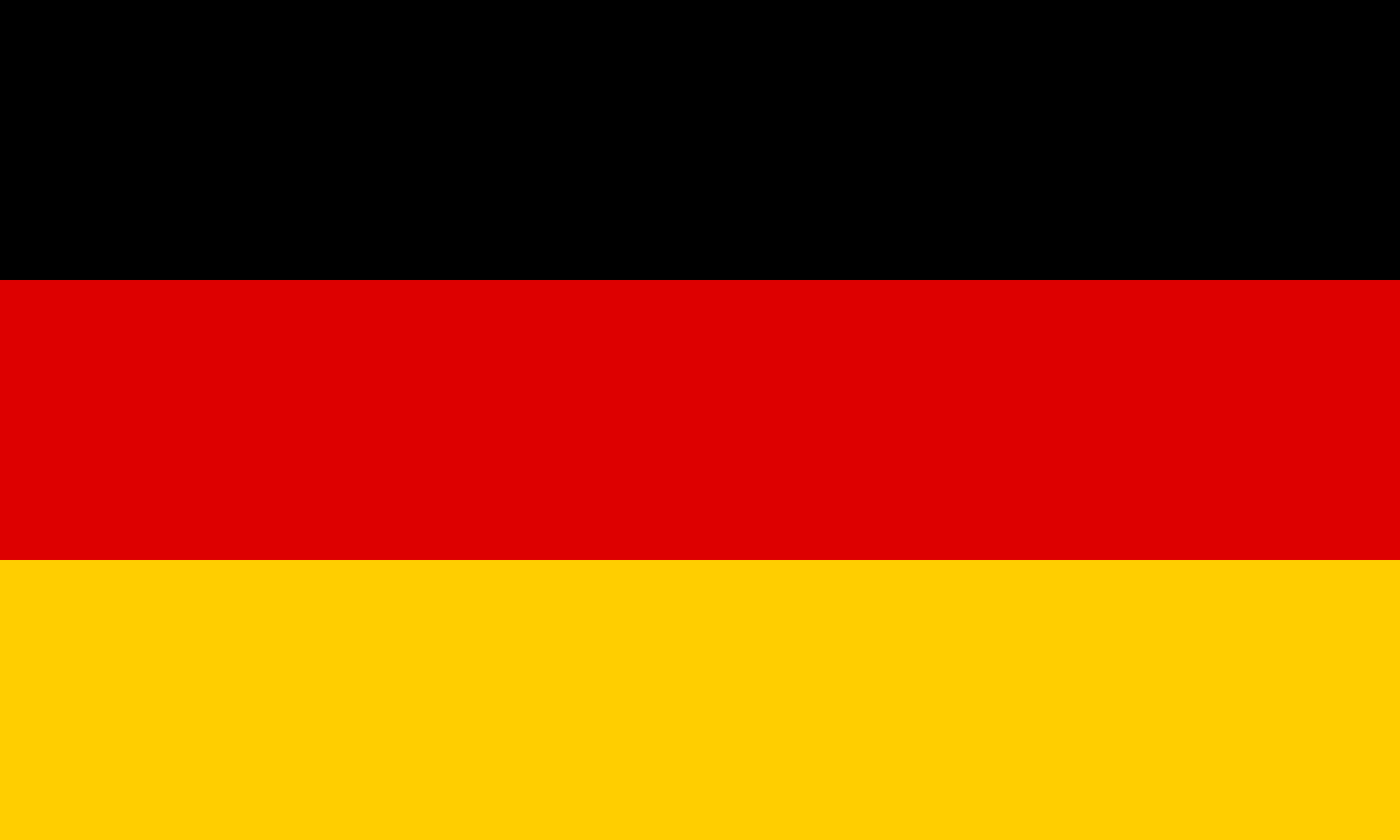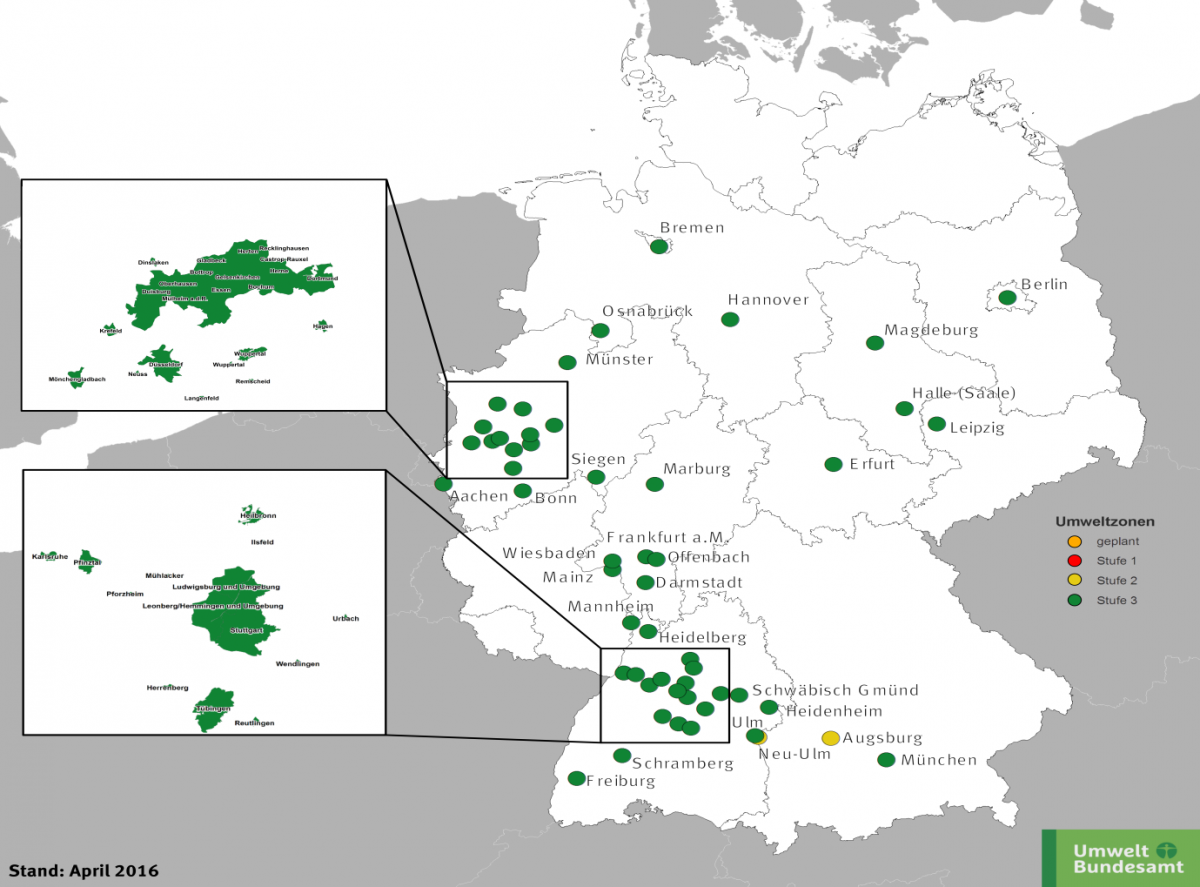
 Germany (or as it is officially known, the Federal Republic of Germany) is a federal parliamentary republic in central-western Europe. It comprises 16 States, and covers an area of 357,021 square kilometres (137,847 square miles). It has a population of approximately 82million inhabitants.
Germany (or as it is officially known, the Federal Republic of Germany) is a federal parliamentary republic in central-western Europe. It comprises 16 States, and covers an area of 357,021 square kilometres (137,847 square miles). It has a population of approximately 82million inhabitants.
Germany is the most populous member state of the European Union. Berlin is its capital city. The main urban areas are: The Ruhr, Hamburg, Munich, Cologne, Frankfurt, Stuttgart and Düsseldorf.
Germany was a founding member of the European Union in 1993 and is part of the Schengen Area as well as became a co-founder of the Eurozone in 1999. Moreover, Germany is a member of the United Nations, NATO, the G8, the G20 and the OECD.
With its central European position geographically, it naturally has many European neighbours. It borders Denmark to the North, Poland and the Czech Republic to the east, Austria to the Southeast, Switzerland to the South-southwest, to the West lie France, Luxembourg and Belgium as well as the Netherlands to the North-west.
Germany only has one direct ferry route which links it to the UK - the Cuxhaven to Immingham ferry route offered by DFDS North Sea. The route is served by a 12 driver Freight vessel. Tickets are for the specific sailing time and date.
Alternatively, the traditional method that most freight drivers employ is sailing from Dover to Calais or Dunkirk. It is worth noting that Dunkirk is the better option geographically speaking, as it saves you both time and fuel compared with driving from Calais.
Important rules to consider when driving in Germany
When driving on the autobahns there are a number of key things that you need to consider in order to be safe.
- Ensure that you always keep pace with the traffic already on the road - This applies when joining the motorway as well.
- Never use the hard shoulder as it is only intended for 2 main purposes - If your vehicle breaks down and to enable emergency services vehicles a clear path to any accidents. It is forbidden to use the hard shoulder as an early exit in case of traffic jams or as a parking space for short breaks. In instances where it is used as such are punishable by fines or points.
- Overtaking is another area where important consideration has to be made; it goes without saying that the central mirror should be used for regular checks to ascertain the distances from other traffic, but also to decide whether or not it is safe to overtake. When there are large gaps in the traffic it is best to utilise the indicators to inform other road users of your intentions, before attempting any movement over to the Left lane. Failure to comply with these regulations could result in an on the spot fine, as well as three points on your licence. Exceptions can be made in cases where there are traffic jams or motorway junctions.
- In instances where there is a traffic jam, use the hazard warning lights to warn drivers behind you of the incident so that they can adjust their speed accordingly.
- Use of mobile phones while driving has theoretically been forbidden for over 10 years, because It can lead to accidents. Many Germans 90% according to a Dekra-questionnaire believe that the punishment for using a mobile phone whilst driving is far too lenient. Consequently a new punishment has been enacted in the form of a 40EUR fine as well as 1 Point on your licence.
- On German Motorways there is a general recommended speed limit of 130 km/h (80mph) however, if no other indication is provided this speed limit can be exceeded. In incidences where you exceed the speed limit and an accident then occurs you can be held partially responsible as just because you can drive fast, doesn’t automatically mean that you have to.
Items you must have in your vehicle
- First-aid-kit
- Warning triangle
- Hi-visibility jacket, (though not mandatory for all passengers, it is still advisable to have sufficient numbers for all occupants of the vehicle)
- Drivers licence and certificate of registration part I - if asked by police officers this must be presented, a copy of this would not be sufficient to pass a vehicle inspection by the police
- Full passport and an appropriate letter of authority to drive the vehicle from the registered owner should be carried at all times.
- EU Drivers hours should be recorded on a tachograph
- Letter of attestation by the company indicating the undertaking, driver and member state of residence - the letter of attestation should be in the language of whatever countries the driver is transiting through and also should include contact details in case any additional details are required.
- A spare tyre as well as all associated components that accompany it such as: tools & Jack are not compulsory, however they are recommended.
Further recommended items are:
- Tow rope
- Jump leads
- Gloves
- Parking disc
- Rescue card
- Accident report form
- Spare bulbs.
In winter it is also advisable to carry:
- Blankets
- Something to drink
- A thermos flask with either tea or coffee
- Ice scraper
- Hand brush
- Torches
- Snow chains (in mountainous regions)
- Anti-freeze
Speed limits
Speed limits are a maximal permissible speed of 50km/h within inner cities and 100km/h on the outskirts. On motorways and highways it is acceptable to drive faster. Everything else will be indicated via signposts. The main point to consider is that the driver should only drive at a speed which corresponds to his or her competence and is within the vehicles capabilities. On Single-lane carriageways the maximum permissible speed for a vehicle weighing between 3.5 Tonnes and 7.5 Tonnes is 80km/h. For Lorries weighing over 7.5 Tonnes the maximum permitted speed on main roads and federal highways with one lane is 60km/h. On motorways Lorries are allowed to travel at 80km/h, under certain circumstances such as according to the technology of the vehicle the speed limit on motorways is 100km/h. It is recommended to drive a little slower on motorways in order to avoid any on the spot fines. Please also note that Lorries and Artics are subject to the whims of the weather, in this instance if the weather conditions are poor such as: during foggy conditions, heavy rain or snow then the maximum permissible speed is reduced to 50km/h.
Vehicle restrictions
Like many countries within the EU there are a number of legal requirements concerning oversize transportation. For any transportation which deviate from the norm of the “Straßenverkehrs-Zulassungs-Ordnung (StVZO), it is based on article 6 of the “Straßenverkehrsgesetz” enacted by the Ministry of Transport, Building and regional Development.
- Large measurements and small weight
- Heavy haulage (small measurements but very high weight)
- Combination of 1 & 2
- Transport of long freights (greater than twenty metres)
They cause immoderate using of roads and therefore, they require special permission according to article 29 (3) StVO. The basis for this permission is an exception permit pursuant to article 70 StVZO.
Freight escort vehicles or a police escort may be required, dependant on the size of the transported cargo. Such transportations are usually only permissible at certain times. During holidays the use of several motorways is principally impossible. This is then known as “off-time”. Oversize transports are only permitted to travel between Monday 9am and 3pm. Nearly all transportations with a width above 3.2 meters have to take place between 10pm and 6am at night. Oversize transportation must have a valid permit which must be obtained form the authorised regulatory agency. All information about the load to be shipped, registration numbers, axle distances, and axle loads, number of wheels and route description must be provided.
 Low-emissions Zones
Low-emissions Zones
Like many other European countries now, Germany has a number of Low-emissions Zones throughout many major cities, regions. All vehicles ranging from cars, to buses to Lorries are affected by these emissions zones. Only motorbikes and other 3 wheeled vehicles, work machines, agricultural and forestry tractors, mobile machines, old-timers and mobility scooters are exempt from these regulations. The low-emissions zones themselves are intended to improve local air quality, thereby reducing the effects on peoples overall health. Failure to comply with these regulations will result in an €80EUR on the spot fine.
Emergency Services
If there is ever a requirement to contact the emergency services, such as in the case of an emergency the following numbers are recommended. However, it should be noted that 112 acts as a general emergency services number in a similar fashion to 999.
112 Fire service (Feuerwehr)
110 Police (Polizei)
Places to Visit
If you have the opportunity on your journey, check out some of the 100 Best Things to do in Germany. This is a fantastic list of places to visit when you have some down time.
Sources:
http://www.transportoversize.eu/en/do_i_need_a_transport_permit/germany/
https://www.vgh.de/web/html/privat/ratgeber/auto/inhalt_auto/



 United Kingdom
United Kingdom Republic of Ireland
Republic of Ireland Polska
Polska România
România Republica Moldova
Republica Moldova Российская Федерация
Российская Федерация Украина
Украина Республика Беларусь
Республика Беларусь Литва
Литва Латвия
Латвия Эстония
Эстония Deutschland
Deutschland Schweiz
Schweiz Österreich
Österreich Lichtenstein
Lichtenstein Belgien
Belgien Luxemburg
Luxemburg Magyarország
Magyarország Česká republika
Česká republika Slovenská republika.
Slovenská republika. España
España Italia
Italia Bulgaria
Bulgaria









